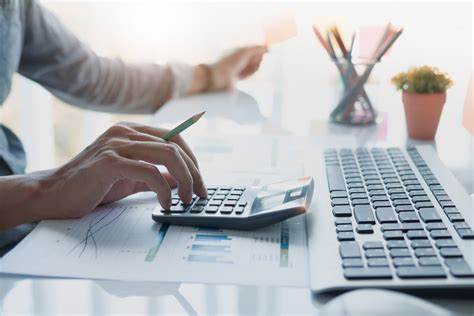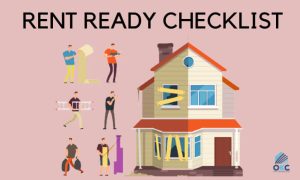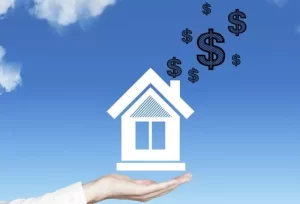To be a successful landlord/investor, you must know that a percentage of your income (most likely a relatively high rate) is set aside before being deposited in savings. Even before you get your rental property ready, insurance, taxes, unexpected repairs, and utilities all eat into future profits. It’s worthwhile to up your game by calculating your yearly projected expenses, which include maintenance.
Allocating Budget for Rental Property Maintenance
Suppose you are yet to set a budget for rental property maintenance expenses. In this case, you could create an unsafe and unpleasant environment for residents, and most importantly, you could also lose money on your rental properties. It’s easy to think that 100 percent of your rental income will go directly into your pocket, but apparently, this myth depends on nothing other than the dreams and hopes of those yet to purchase an investment property.
In fact, when you have a reasonable estimation of the total maintenance costs, it allows you to prepare your budget wisely. Planning for maintenance enables you to keep aside a portion of your rental income for upkeep, which allows you to perform routine maintenance on time.
The Impact of Routine Maintenance
One major problem with preceding maintenance is that neglecting common maintenance issues often results in more significant problems and the need for costly and more extensive repairs. For instance, a small leak in the roof can eventually lead to structural issues or extensive mold damage. So a little maintenance can go a long way in preventing problems.
Estimating Maintenance Costs for Investments
Don’t forget to estimate maintenance when calculating the costs of a potential investment property. This will help when accounting for yearly expenses and will further assist you in determining if a property is a financially viable purchase.
Yes, most landlords dread maintenance because they associate it with unnecessary and costly expenses, but care for property doesn’t have to be expensive. The magic lies in routine maintenance.
According to GetRichSlowly, the national statistic on the Cash Value of Home Maintenance mentions that for every $1 spent on maintenance, you are avoiding up to $100 of repairs.
In other words, as a professional landlord looking to save, take your time with maintenance!
Types of Rental Property Maintenance
Maintenance appears to be a vast term. Hence, the types include;
1. Seasonal Maintenance
Though it depends on your location, seasonal tasks are another critical part of rental property maintenance. There are some things to do every season to prevent future damage and repairs. They include:
Fall / Winter Maintenance Tasks:
-
-
- Clean your fireplace before use during the winter period.
- All through the year, inspect the pipes to ensure leaks and damages are absent. You can enlighten your tenant on the signs of frozen pipes, etc.
- Seal any openings around the house to prevent pests.
- Reverse the ceiling fans to achieve warmth and energy efficiency in the house.
-
Spring / Summer Maintenance Tasks:
-
-
- Install a dehumidifier (if necessary) in the basement to keep it properly ventilated.
- Fix any damaged areas on the roof.
- Test carbon monoxide (or smoke) detectors to ensure they work just fine.
- Clean the gutters to remove debris and ensure proper drainage.
- Replace window and door locks if needed.
-
2. Preventative Maintenance
Several Landlords try their best to keep their rental property intact to avoid unnecessary expenses in the future. Things that’ll be great to inspect while carrying out preventative maintenance are;
-
- Inspect Bathtub – Check the bathroom caulking and grout once a tenant moves out. These seams are quick to deteriorate with water, which can lead to mold growth.
- Replace the HVAC filters regularly – Once in every three months, Landlords or tenants should replace HVAC filters to remove dirt, dust or pollen that collects on the filter and affect air quality.
- Perform Inspections – Yearly inspections on the property can provide you with a good idea of maintenance needs.
- Drain Water Heater – This practice is not a well-known task, but it is essential to periodically drain the water heater to eliminate buildup or clog.
- Test all the Carbon Monoxide (or smoke) detectors – It is essential to test the carbon monoxide detectors at least once in a year for safety purposes.
3. Emergency Maintenance
Emergency occurs when you least expect, so you can’t be too prepared for it. That’s why emergency maintenance situations must be attended to with immediate effect by reaching out to landlords or property managers, as the case may be.
Guidelines for Estimating Maintenance Costs
Here are some practical guidelines for estimating rental property maintenance costs:
1. The 50% Rule
Landlords can easily keep 50% of their monthly income for repairs, routine maintenance, and other costs.
2. The 1% Rule
Maintenance costs around 1% of the overall value of your property each year. So, for example, if the property is worth $300,000, you will want to save approximately $3,000 for maintenance costs.
3. The 5x Rule
There are times when it’s helpful to look at the bigger picture and how things will be all through the year. The 5x rule refers to every dollar spent on an investment bringing in 5x that in revenue. We can apply this to prospective annual maintenance costs.
Your average maintenance costs will be 15 percent of your monthly rental income. So if your property accrues $10,000 yearly, you should look at an average of $1,500 yearly in repairs. That equates to an average of $125/month spent on repairs.
4. The Square Footage Rule
Save $1 per square footage of your rental property. For instance, if you have a 1,500 square foot, you can save about $1,500 for maintenance.
Additional Expenses to Consider
In addition to maintenance, other categories that may be on your list includes:
- Marketing Costs
- Property Taxes
- Utilities
- Property Management
- Monthly Mortgage
- Trash Collection Services
- Appraisal Fees
- Closing Costs
- Inspection Costs
- Broker Fees & Tenant Screening
- Accounting Fees
- Vacancy Costs
- Property Improvements
- Capital Expenditures (CapEx)
- Business Permits
- HOA Fees
- Periodic Vacancy
- Property Insurance
The Benefits of Using a Property Manager
Using a Property Manager has many benefits, and choosing one from Marda Management is the best bet because they;
- Will help with Rental Property Maintenance
- Manage work orders efficiently
- Provide solution for emergency maintenance issues
- Oversee all service requests






